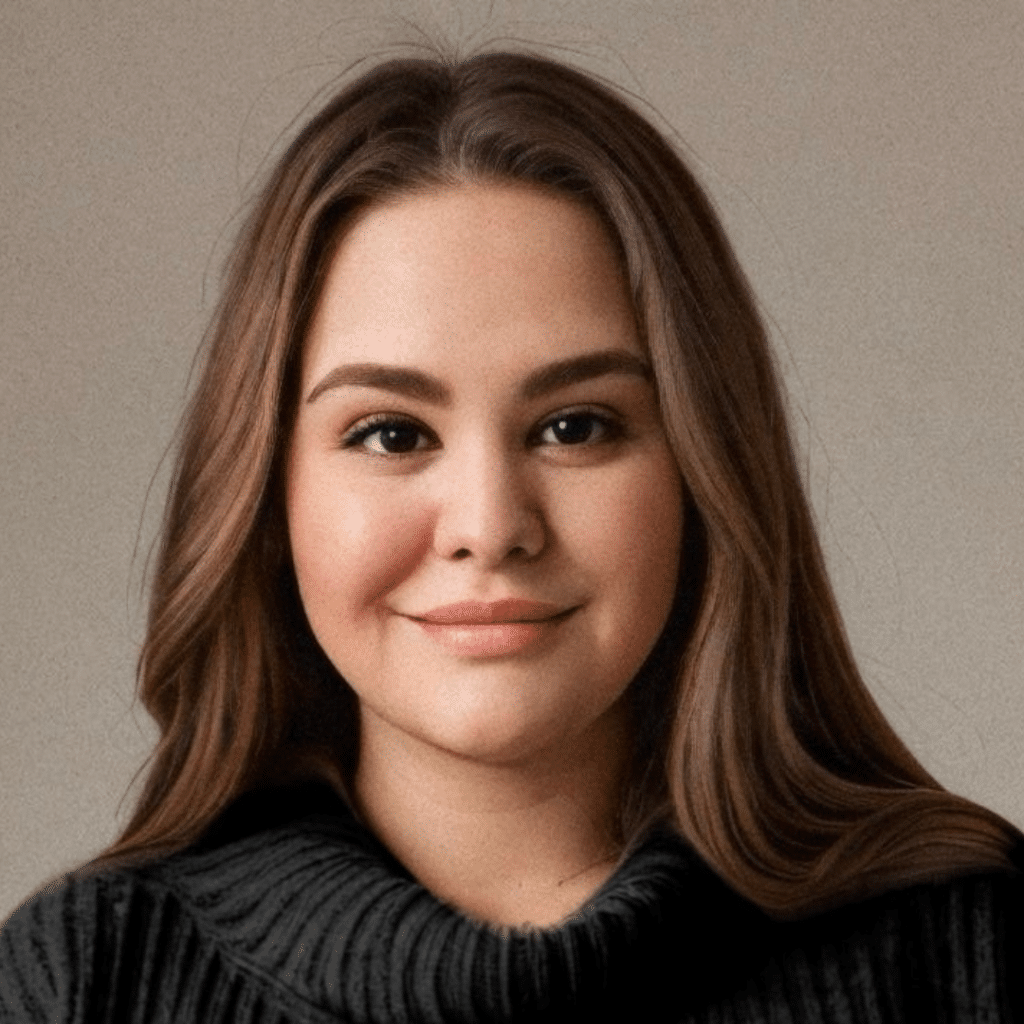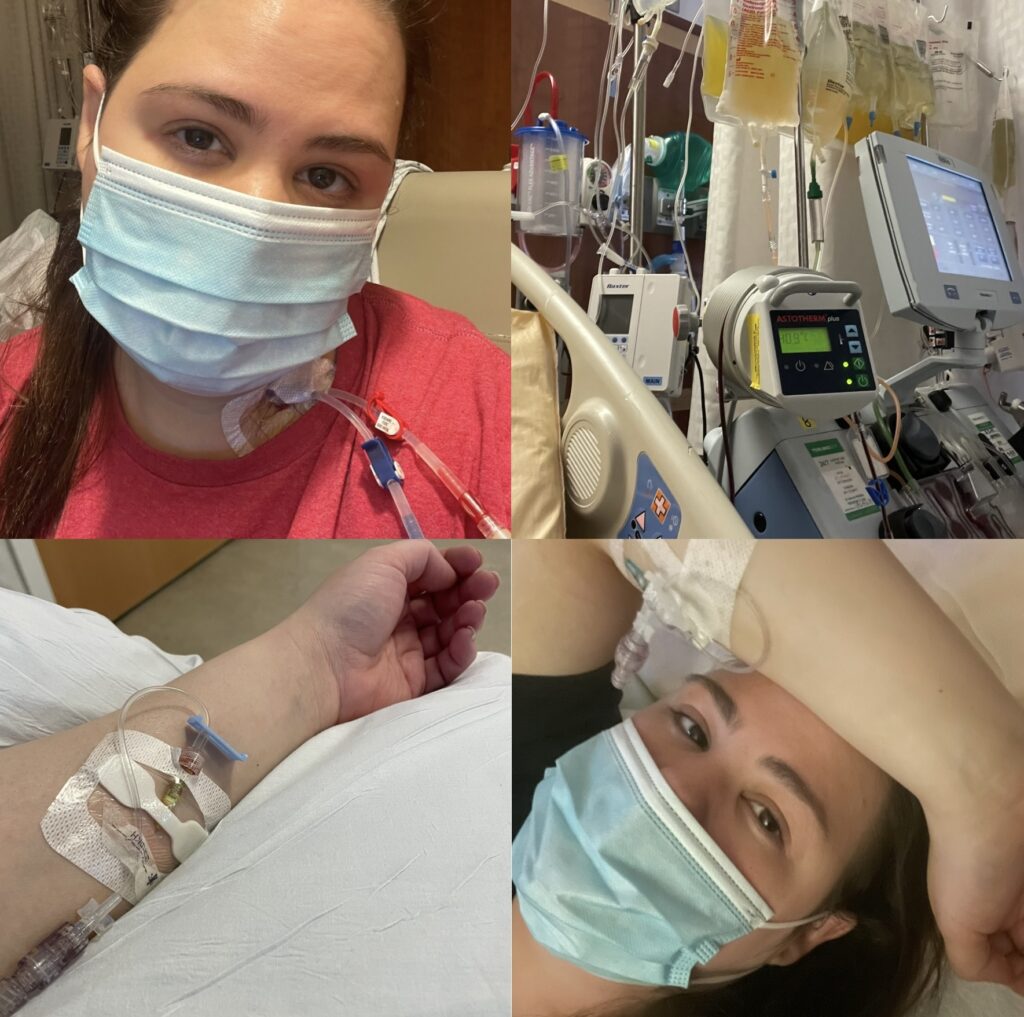
Choose Your Language:
Posted by: The Sumaira Foundation in MOG, Patient, Voices of NMO

Back in July 2022, I was fully immersed in motherhood with my two daughters approaching toddlerhood, finally feeling like I was finding my footing in my career after COVID. Life was busy but manageable—until it all began to unravel.
It started with a persistent feeling of illness. I had chills that wouldn’t go away, unusual fatigue, and headaches that lingered. My coworkers noticed and gently encouraged me to see a doctor. Initially, I thought I was just experiencing severe migraines. It was frustrating, but I figured it was something I could handle.
Then one day at work, everything changed. A sudden stiffness seized my neck, making it hard to turn my head. Panic set in, and I rushed to the hospital, fearing meningitis. The hours that followed were agonizing, filled with tests and little results. Eventually, they diagnosed me with viral meningitis. Relief washed over me briefly; while it wasn’t ideal, at least I finally had an answer.
Weeks later, I woke up to a gray, blurry spot in my right eye, accompanied by a piercing headache. I had promised my girls a day of apple picking, so I pushed through, but everything looked dull, and I couldn’t see the deep red of the apples. I decided to consult a neurologist specializing in migraines, hoping for a solution. After several ineffective treatments, it became painfully clear that my situation was more complex. I was referred to a major hospital for a comprehensive evaluation.
All the tests returned negative—West Nile, Epstein Barr, Lyme disease. I felt trapped in a cycle of uncertainty and frustration. Eventually, I left the hospital against medical advice. A neurologist on rounds had given me her number, saying, “If you worsen, please call me.” It felt like she knew I would soon find myself reaching for it in desperation.

After another episode of near-complete vision loss, I called that number. The receptionist informed me the doctor was unavailable, but her colleague could see me. I took the appointment, but the news was gut-wrenching: “I think you have one of three conditions—MS, Sarcoidosis, or MOGAD. We need to run tests to determine which.”
My world felt like it was closing in. We started with outpatient tests, and I began high doses of oral steroids. Days turned into weeks, and I still felt no better. Finally, my doctor suggested a short hospital stay for plasmapheresis. Hesitant but desperate, I realized I had to give it a shot.
That hospital stay was chaotic. I faced complications like sepsis, feeling utterly helpless as my health continued to decline. I lay there, listening to doctors debate my diagnosis. Just before I discharged myself for a second time, I had a MOG titer test done. The waiting for those results felt endless.
When my doctor called with the news, she confirmed I had MOGAD. The treatment I was on was appropriate, but she warned me about the likelihood of relapses and the fact that there’s no cure. Anxiety hit me hard—how could I manage life with this rare disease?
With looming insurance issues and the daunting task of finding specialists, I reached out to several MOG experts. Virtual consultations were often financially out of reach, presenting yet another barrier. Then I discovered a neurologist in Boston leading a clinical trial. While apprehensive about joining, I pushed it to the back of my mind as a last resort.
During a follow-up with my neurologist, I settled on IVIG treatment and began tapering off steroids. However, after a few infusions, I started feeling ill during the treatments, which made me reconsider the clinical trial.
I contacted the Boston neurologist, who provided detailed information about the trial and even invited me to come to Boston. Just as I prepared for my first visit, I learned I’d been denied entry due to logistical issues. I felt defeated, as though I was losing my last chance. However, that doctor worked tirelessly to help me find alternatives, eventually discovering that a colleague would be launching a trial at my local hospital.
Deciding to enter this double-blind clinical trial in August 2023 was daunting, but a year later, I’m relapse-free and regaining parts of myself that my illness took. The support from my research team, family, and friends has been everything. This experience has not only restored my health but also given me a renewed sense of purpose.
It’s been a tough journey, filled with struggles and uncertainty, but it has deepened my commitment to advocate for myself and others facing similar battles. While I know the path ahead is still complicated, I’m filled with hope and resilience. I’m determined to help others find their way through their own challenges.